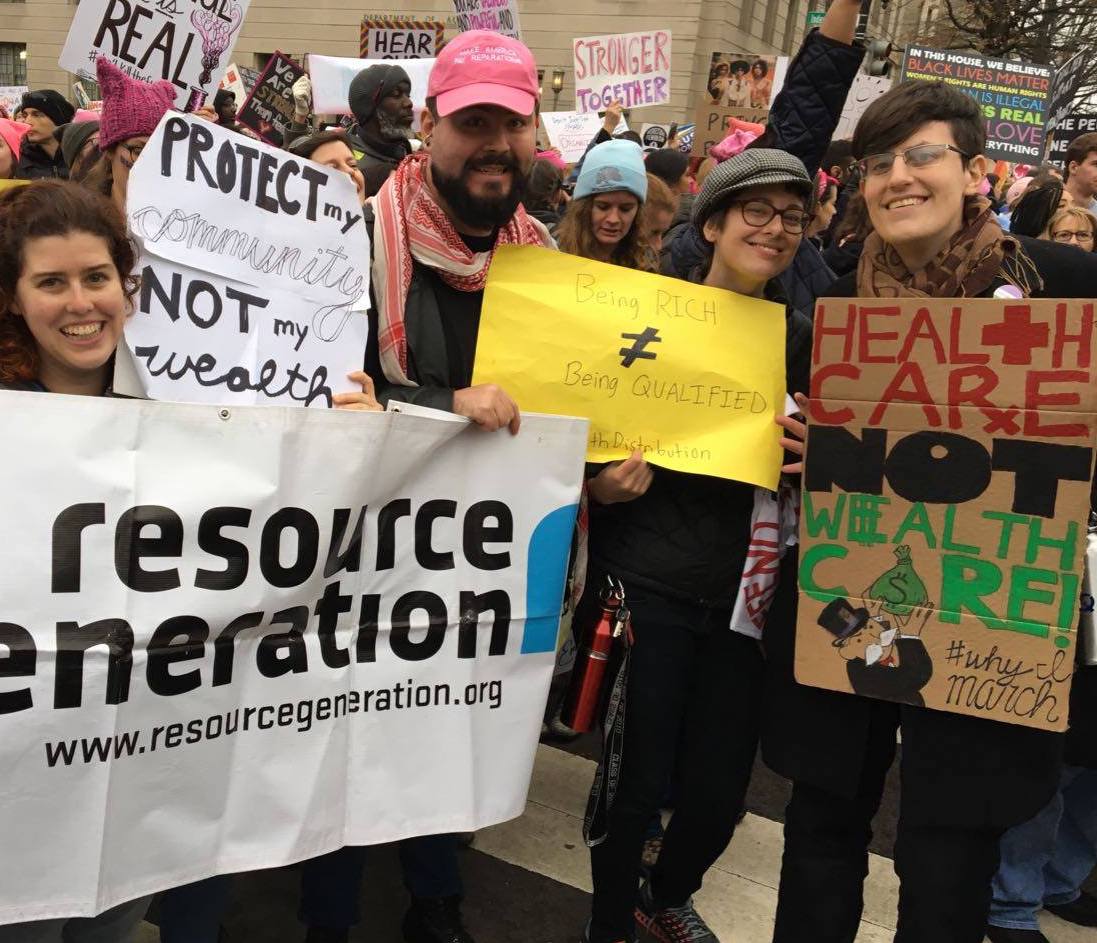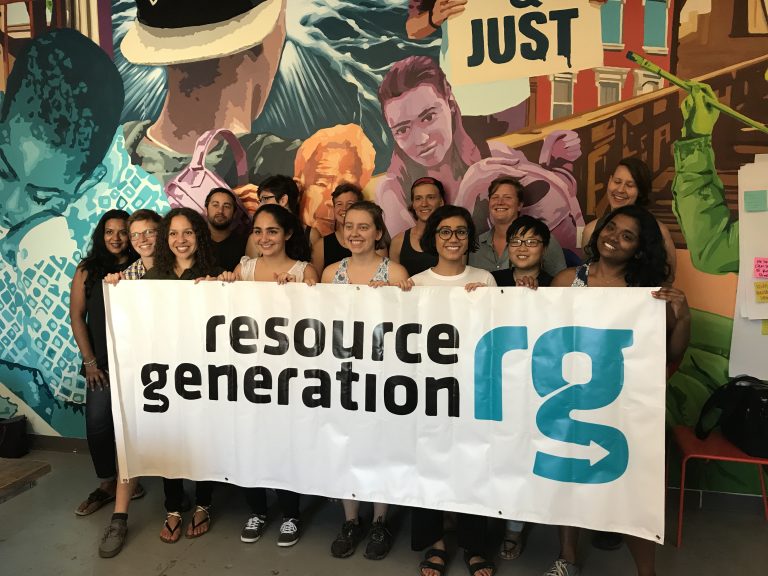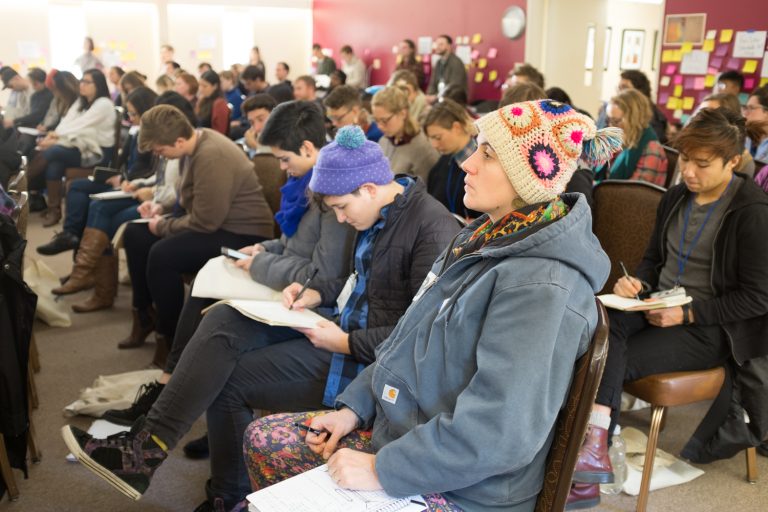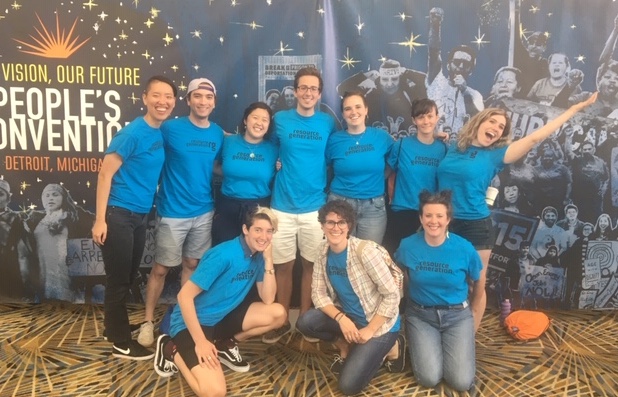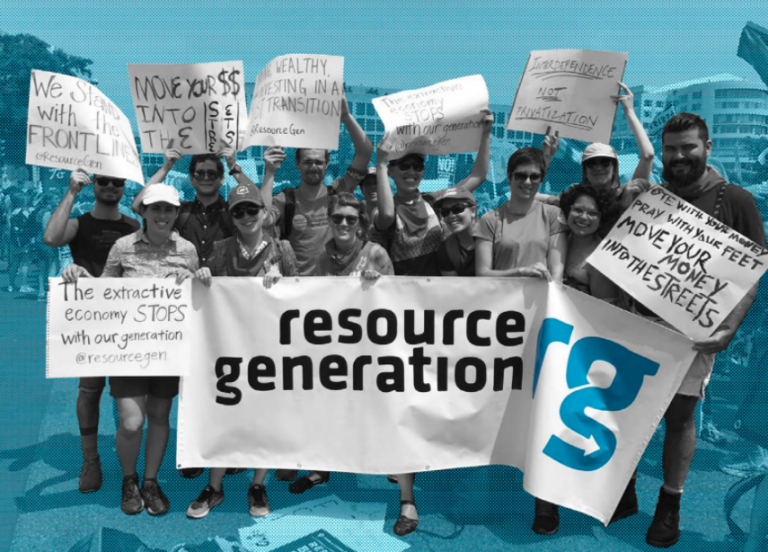“Donors:” If You Mean Rich People, Just Say So
[et_pb_section bb_built=”1″ module_id=”rg-start-section-33-66-right-image” _builder_version=”3.16″ custom_margin=”0px|||” custom_padding=”0px|||” next_background_color=”#000000″][et_pb_row custom_padding=”0px||0px|” custom_margin=”0px|||” parallax_method_1=”off” background_position_1=”bottom_center” padding_top_1=”60px” _builder_version=”3.16″][et_pb_column type=”4_4″][et_pb_text admin_label=”Intro Paragraph” module_class=”intro-paragraph” _builder_version=”3.16″ custom_margin=”40px|||”]
We know we need to move away from donor centrism towards community-centric fundraising. But lately it seems to me that a challenge to centering donors in our work doesn’t go far enough.
In fact, I am against the very use of “donor” as an identity category.
Okay, I know that sounds extreme. I mean, what do I have against being a donor if RG’s key work is to organize wealthy people to…donate? (Practicing social justice philanthropy is obviously way more complicated than that, but still, I do see the irony there.)
What I’m talking about is the conventional practice of using “donors” to mean not a role that anyone can play, but as a code word for “wealthy people.” Using “donors” to refer to class-privileged people is so normalized that we’ve even come up with a different veiled way to refer to people who are more likely to be from poor, working, middle class backgrounds: “grassroots donors.” We know there is explicit classism baked into this hierarchy of donors – grassroots donors are seen as less important even though poor and working class people give a much higher percentage of their wealth than wealthy people. But we don’t always appreciate how even the common use of the term “donors” has come to obscure class.
[/et_pb_text][/et_pb_column][/et_pb_row][et_pb_row use_custom_width=”on” width_unit=”off” custom_width_percent=”100%” _builder_version=”3.16″][et_pb_column type=”4_4″][et_pb_text _builder_version=”3.16″]
Here’s why we need to stop doing this:
- It’s classist: Whenever we refer to class in coded ways through words like “donor” and “grassroots donors,” we reinforce classism by perpetuating silence around class. We don’t say “sunblock users” when we mean “white people”*, so why do we use the act of giving money when we mean “wealthy people” or “upper class people?” Also by making “donor” a valued category of people instead of a neutral role, we reinforce the classist idea that having more money somehow makes someone more important. It’s especially important for donor networks that are organizing people with wealth to name and visiblize the class status of those donors; for example, “we organize wealthy people who care about xyz,” instead of “we are donors who care about xyz.”
- It conflates wealthy people with money and limits the role we can play in movements: Don’t get me wrong, I definitely want wealthy people to redistribute our wealth and to be effective social justice donors (friendly reminder that if you haven’t yet, take our giving pledge!). But I don’t think it serves true cross-class collaboration and solidarity to define and limit wealthy people’s role in movements to being a donor. We must acknowledge that sometimes cutting a check and moving resources is one of the most effective roles we can play as wealthy people, and it is not the only thing we can do. We can tell our stories publicly to counter the myth of meritocracy, take collective action in campaigns in partnership with poor and working-class led organizations, organize our family and wealthy networks, fundraise other wealthy people, and leverage our access to people in positions of power.
- It creates an artificial divide between donors and activists: “Activist” and “community” are also racialized and classed words – when you hear “there will be donors and activists attending” or “we want donors to connect with the community,” what race and class background are the “donors”, the “activists,” and the “community?” In my mind “donors” default to white and wealthy and “activists” and “community” are people of color from poor and working class backgrounds. When we use coded language like this we conflate and flatten race and class and make it seem like these are all fixed, separate categories, and that a donor can’t be an activist or from the community. It’s telling that a phrase like “donor activist” exists – it shows just how much we separate those identities.
- Treating donors as an identity instead of a role means people want to stay being donors. If a wealthy person has regular access to special donor briefings, donor appreciation, and donor-only events, and internalizes being a donor as a core part of their identity and as their primary relationship to movements, what happens if they redistribute their wealth and stop being a donor? Hopefully they have found other ways to genuinely participate in social justice movements but the current donor/activist binary doesn’t set us up well to organize wealthy people beyond the money we can give.
[/et_pb_text][et_pb_text admin_label=”Pull Quote” module_class=”rg-blog-post-pull-quote” _builder_version=”3.16″ text_font=”|700|||||||” text_text_color=”#ffffff” text_font_size=”45px” text_line_height=”1.2em” background_color=”#00a9dd” max_width=”95%” custom_padding=”40px|60px|40px|60px” custom_padding_tablet=”40px|30px|40px|30px” custom_padding_last_edited=”on|phone” animation_style=”slide” animation_direction=”left” custom_css_main_element=”font-family: ‘StratumNo1’;||font-size: 45px !important;||font-weight: bold;||color: white;||line-height: 1.2em;” saved_tabs=”all”]
I want to encourage us to transform our language and framing around individual donors to help us transform what is possible for cross-class organizing.
[/et_pb_text][et_pb_text _builder_version=”3.16″]
I’m not a purist, I know it is practical and helpful to use the word “donor” and will certainly continue to use “donor” and “donor organizing” when describing parts of RG’s work.** But I want to encourage us to transform our language and framing around individual donors to help us transform what is possible for cross-class organizing.
Some thoughts on alternatives:
- I intentionally talk about people involved with RG as our “base” and as our “members,” not “donors.”
- What if we said “organizing wealthy people” or “upper class organizing” instead of “donor organizing?”
- Consistently use “donors” in a truly neutral way to refer to any individual who gives to your organization; say “wealthy donors” when you mean it
- Although “ally” framing is imperfect, it can also be useful. If we have white allies and straight allies, why not wealthy or upper class allies?
- Instead of just saying “community,” be specific about what “community” we’re talking about: “poor and working class Black and Latinx communities;” “multiracial community of young people with access to wealth and class privilege.”
I know much of the difficulty of using “wealthy” or “upper class” as identifiers instead of “donors” is that people don’t want to identify as wealthy or upper class, or falsely think that they are middle class.
To be effective there would need to be a paradigm shift around class identity and analysis in our sector. This is one small offering in service of that shift. I don’t have all the answers but hope to be in an ongoing conversation about how we can truly move away from donor centrism by not reinforcing “donor” as a core identity for wealthy people – our movements need us to be so much more.
—
*Don’t come for me, I know people of color wear sunblock too! I’m one of them! 🙂
**And I do think using the word “funder” to describe institutional funders is not as problematic because it is describing a fixed and static role and power relationship between organizations (not individuals).
[/et_pb_text][/et_pb_column][/et_pb_row][/et_pb_section][et_pb_section bb_built=”1″ _builder_version=”3.0.47″ prev_background_color=”#000000″][et_pb_row _builder_version=”3.0.48″ background_size=”initial” background_position=”top_left” background_repeat=”repeat”][et_pb_column type=”4_4″][/et_pb_column][/et_pb_row][/et_pb_section]
